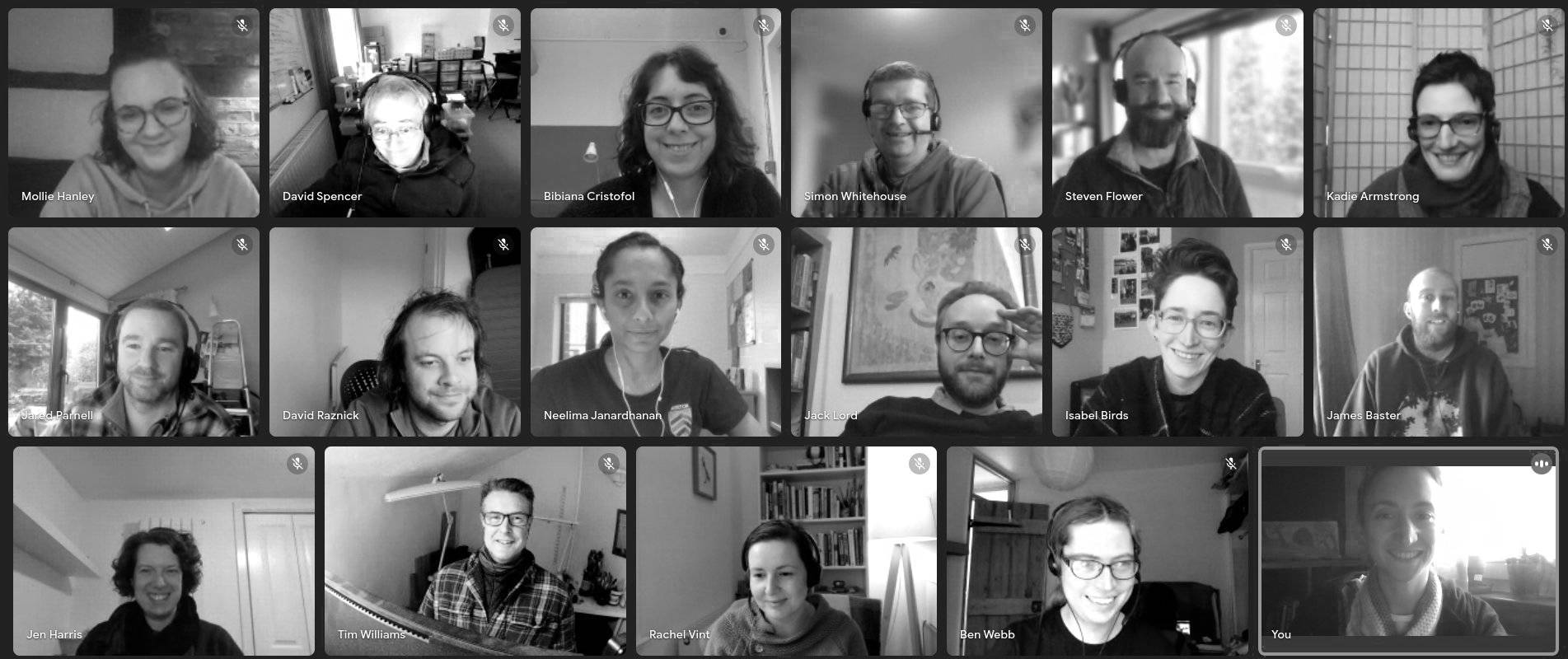As a team that has always operated remotely, we’ve been relatively insulated from the impact of changing working practices due to lockdown. In this blog post, we share how we made it through the past year and a half.
For more thoughts on how we learnt to work remotely, read How we built a productive remote team — without losing our marbles by Edafe Onerhime, a former member of our co-operative.
While our co-op has always been a remote organisation, stay-at-home orders still meant that we had to find new ways of doing things. It hasn’t always been easy. But, comparatively, we count ourselves as extremely fortunate — working in a remote-first organisation is a very different experience to working from home in a pandemic.
As a team that already operated remotely, we had the fundamentals in place to support ourselves through a time when everyone had no choice but to work from home. And as a workers co-operative, we’ve been able to adapt how we work to prioritise the wellbeing of our members.
We chose to operate remotely when our co-operative was set up six years ago as a way to remove barriers and help us to hire the best people. It enables us to work in ways that suit our circumstances and accommodate our needs — including caring responsibilities, health conditions and disabilities, and any other part of our lives that might interact with how we work.
Because we’ve chosen to work remotely, we’ve had to make choices that guard against the disadvantages of not being in an office. We understood early on that people need both practical tools and emotional support to be happy and successful while working remotely.
On a practical level, we provide members with laptops, monitors, desks, chairs and anything else that might be needed to create a comfortable environment to work from home. But, working remotely isn’t only about working from home — we cover costs for members who prefer to rent a desk in a coworking space. We also have a change of scenery policy, which means our members can expense a drink and a snack to work away from their usual space, and support local businesses.
On an emotional level, we’ve worked to find ways to stay connected with each other as a distributed team. We hold daily stand-ups to report on our work and our wellbeing, and use various channels of communication to check in on each other and our work while avoiding meeting burnout.
We’ve also worked to replicate informal interaction and learning that’s often touted as an exclusive benefit of being in an office. We hold ‘show and tell’ meetings to share knowledge, and regular retrospectives to help us understand how we can improve. We encourage newer workers shadowing more experienced workers, and to encourage collaboration and co-working. Our calendars are open, too — so people can invite themselves or ask to be invited to any meeting (unless there is a very good reason).
And a permanent office is not the only way to get the benefits of working together in person. Before the pandemic, we broke up our remote work with regular in-person co-working with each other, or with clients. We would also get together quarterly to work on our co-op. Meeting up in person was great for making sure everyone felt connected, and during the pandemic we have consciously tried to create virtual versions of these sessions.
As the UK starts to open up, it seems like many companies are rushing to get people back to the office. But, through running our co-operative we’ve learnt that with the right support, remote work can offer so much more than being forced to work from home. It means we have trust in our members to deliver value to our clients in a way that suits their needs, without limiting our membership to people who are able (or willing) to work in a single office.
